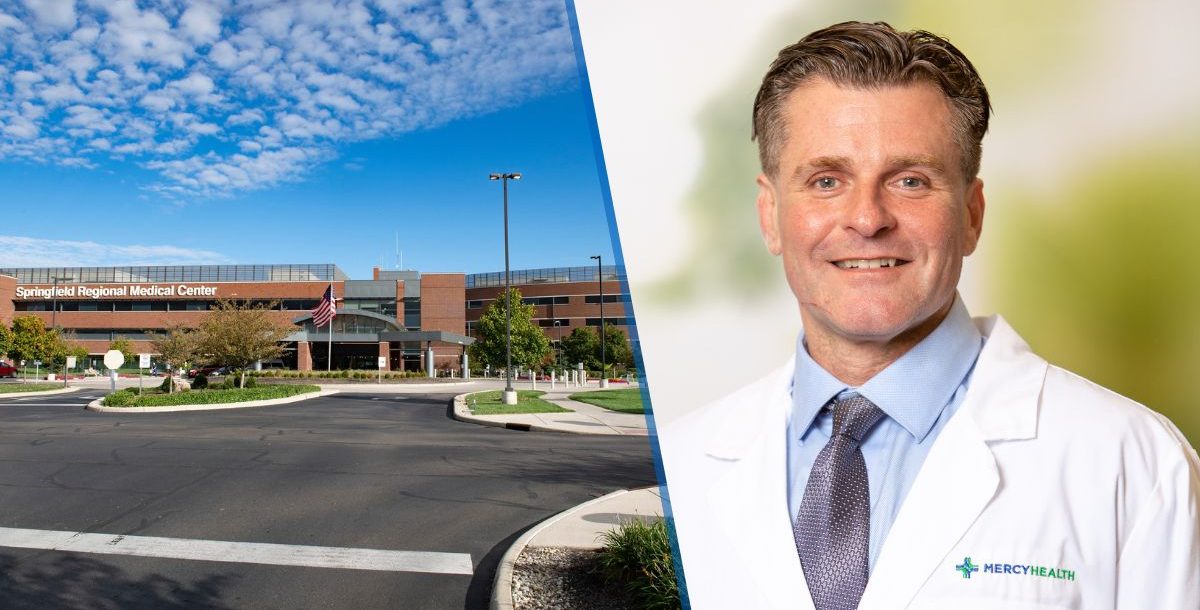A stroke is a medical emergency that occurs when blood flow to part of the brain is interrupted. Every minute counts when it comes to stroke treatment and receiving the right care quickly can significantly impact a patient’s recovery. However, visiting a hospital with the proper stroke care designation can also make a difference.
Why does stroke care designation matter?
Stroke care designations indicate a hospital’s capabilities and resources dedicated to treating stroke patients. These designations are awarded by independent organizations like The Joint Commission, ensuring hospitals meet rigorous standards in stroke care delivery.
Jody Short, DO, an interventional neurologist with Mercy Health — Springfield Interventional Neurology, emphasizes the importance of stroke center designations.
“Stroke care is time-sensitive. The faster a patient receives the right treatment, the better their chances of recovery,” he says. “Knowing the capabilities of your local hospitals and their stroke center designations empowers you to make informed decisions during a critical moment.”
Levels of stroke care designation
Comprehensive Stroke Centers
These hospitals represent the highest level of stroke care. They provide a full spectrum of stroke treatment options, including:
- 24/7 access to neurologists specializing in stroke care
- Advanced neuroimaging capabilities, like CT scans and MRIs
- Clot-busting medications (thrombolytics)
- Endovascular thrombectomy, which is a minimally invasive procedure to remove blood clots from blocked arteries
- Neurosurgical services for complex stroke cases, including brain bleeding (hemorrhagic stroke)
- Stroke rehabilitation programs
Primary Stroke Centers (PSC)
These hospitals are equipped to treat most stroke cases. They offer:
- 24/7 availability of stroke-trained health care professionals
- Rapid stroke assessment and diagnosis
- Clot-busting medications
- Dedicated stroke units with specialized staff
“Mercy Health — Springfield Regional Medical Center is a designated Primary Stroke Center by The Joint Commission,” Dr. Short says. “However, we do currently perform thrombectomies and will be seeking TSC certification in 2025.”
Thrombectomy-Capable Stroke Centers (TSC)
These centers offer capabilities similar to Primary Stroke Centers but with a crucial distinction: they have the expertise and technology to perform endovascular thrombectomy procedures. This minimally invasive technique allows for the removal of blood clots in larger arteries that may not respond to clot-busting medications alone.
Acute Stroke-Ready Hospitals (ASRH)
These hospitals provide the initial evaluation and stabilization for stroke patients. They may administer clot-busting medications but might lack the resources for complex stroke cases or thrombectomy procedures. In such instances, they would transfer patients to a higher-level stroke center.
Recognizing a stroke
The American Stroke Association emphasizes the importance of remembering BE FAST to recognize the warning signs of a stroke:
- Balance problems: Sudden difficulty walking or maintaining balance
- Eyesight changes: Sudden vision problems in one or both eyes
- Facial drooping: One side of the face drooping or feeling numb
- Arm weakness: Weakness or numbness in one arm
- Speech difficulty: Slurred speech or difficulty understanding speech
- Time to call 911: Call emergency services immediately if you experience any of these symptoms
This knowledge can be crucial during a stroke emergency. Here are some additional steps you can take:
- Talk to your doctor about your stroke risk factors and discuss a stroke prevention plan.
- Create a stroke emergency plan with your family, including knowing the location of the nearest stroke center and how to get there quickly.
Remember, every second counts when it comes to stroke treatment. By understanding stroke care designations and recognizing the warning signs, you can enable yourself and your loved ones to act quickly.
Want to learn more about your own stroke risk? Learn about the stroke care services we provide at Mercy Health.






